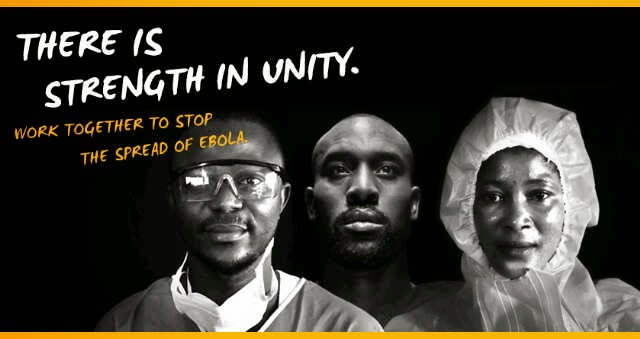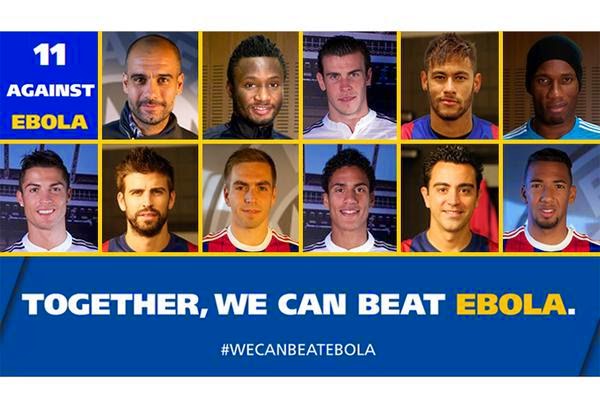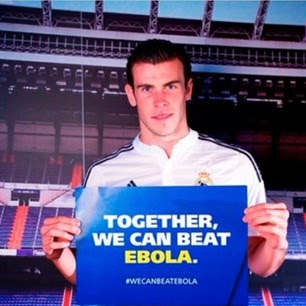What a wonderful initiative. It’s highly commendable too. So, a group of Ebola survivors in West Africa teamed up to a create a new, interactive mobile app that allows them to connect with each other, share public health advice, and update the world on the challenges they still face during their post-recovery lives.
The innovative digital tool debuted in Guinea on January 5. It is being piloted by the first Guinean survivor to share her story with the #ISurvivedEbola campaign. The updates from the app appear on the newly launched #ISurvivedEbola website (
http://www.isurvivedebola.org), which also houses the stories of a growing community of Ebola survivors from Liberia, Sierra Leone, and Guinea.
In the first-ever message sent via the mobile app, Camara “Fanta” Fantaoulen of Guinea stated in French, “Yes, I survived Ebola, thanks to the help of the brave healthcare workers who treated me. And I’ve learned that together, we can defeat this virus and protect our families and communities.”
After losing her father and five other family members to suspected or confirmed Ebola, Fanta believed her death was imminent when she tested positive for the virus. Thanks to a combination of early treatment, strict adherence to her treatment plan, and sheer determination, Fanta recovered from the virus and is now providing psychosocial support to Ebola patients.
The mobile app is the latest component of the #ISurvivedEbola campaign, which leverages survivor stories from Liberia, Sierra Leone, and Guinea to deliver vital public health information about Ebola to affected populations, and to reduce the stigma faced by Ebola survivors.
A key way in which the campaign does this is by documenting survivor stories in video, audio, and print formats; then disseminating these stories broadly via local, national, and international media, online platforms, and other distribution channels. Educational radio dramas that tell fictional yet reality-based stories of survival, and radio call-in shows that feature Ebola survivors as guests, are among the equally important campaign activities.
Funded by Paul G. Allen’s Vulcan Productions in response to the Ebola crisis in West Africa, #ISurvivedEbola is part of the #TackleEbola initiative (
http://www.tackleebola.com) and the Paul G. Allen Family Foundation’s commitment of at least $100 million for Ebola relief. The campaign is implemented by PCI Media Impact in collaboration with UNICEF.
Carole Tomko, General Manager and Creative Director of Vulcan Productions, states, “The mobile app really changes the face of this campaign by empowering the people of West Africa to share stories about Ebola and survivorship with each other and the world. The app gives a human face to survivorship and has the potential to create a sense of community in which the survivors, rather than being stigmatized, become leaders and heroes in this fight. The new digital components of the campaign extend our reach beyond West Africa, allowing these very moving, personal stories to be seen and heard globally.”
Currently, campaign staff in Liberia, Sierra Leone, and Guinea are providing each survivor who has shared his or her story through the campaign with a smartphone installed with the app, thereby enabling these individuals to use the technology to share information about their lives after recovery. The smartphones and the app were provided and developed with support from the charity fundraising website GlobalGiving. Campaign staff expect survivors in all three countries to begin utilizing the app within two weeks. The mobile app updates will be shared globally on the newly launched #ISurvivedEbola website.
With the release of the app and launch of the website, the #ISurvivedEbola campaign has completed Phase I of its roll-out in Liberia, Sierra Leone, and Guinea. With active distribution of campaign products across radio, print, digital, and video platforms in West Africa and beyond, the #ISurvivedEbola campaign is also continuing to add stories of hope and resilience to the world’s focus on the Ebola outbreak. These stories include two additional survivor story videos from survivors in Liberia and Sierra Leone, respectively.
The latest Liberia video introduces the world to Decontee Davis, a 23-year-old who overcame Ebola but lost her fiancé to the virus. Decontee now works in an Interim Care Center for children who have come in contact with Ebola patients and are under 21 days of observation. Many of these children have lost one or both parents to the disease. In the new Sierra Leone video, audiences meet Aminata Kargbo, a university student who, after surviving Ebola, has arisen as a leader in efforts to educate her fellow countrymen and women on the benefits of early treatment.
View the two new videos here: Mother of Many: Ebola Survivor Decontee’s Mission to Help Children Touched by the Outbreak (
https://vimeo.com/115734700), and The Power of Early Treatment: Aminata’s Story of Ebola Survival and How She is Using it to Help Others (
https://vimeo.com/115734353)
“The campaign is really accelerating, especially in the three countries hardest hit by the Ebola outbreak,” said Sean Southey, CEO of PCI Media Impact. “We began in early December with the launch of the campaign and release of the first survivor video (
https://vimeo.com/113323185) out of Liberia.
Then, the campaign launched educational Ebola-focused radio programs in Liberia and released the premier survivor story out of Sierra Leone (
https://vimeo.com/115082561). Now, we have activated the mobile app, released the first survivor story out of Guinea, and launched a website that will allow concerned citizens throughout the world to join the movement.”












